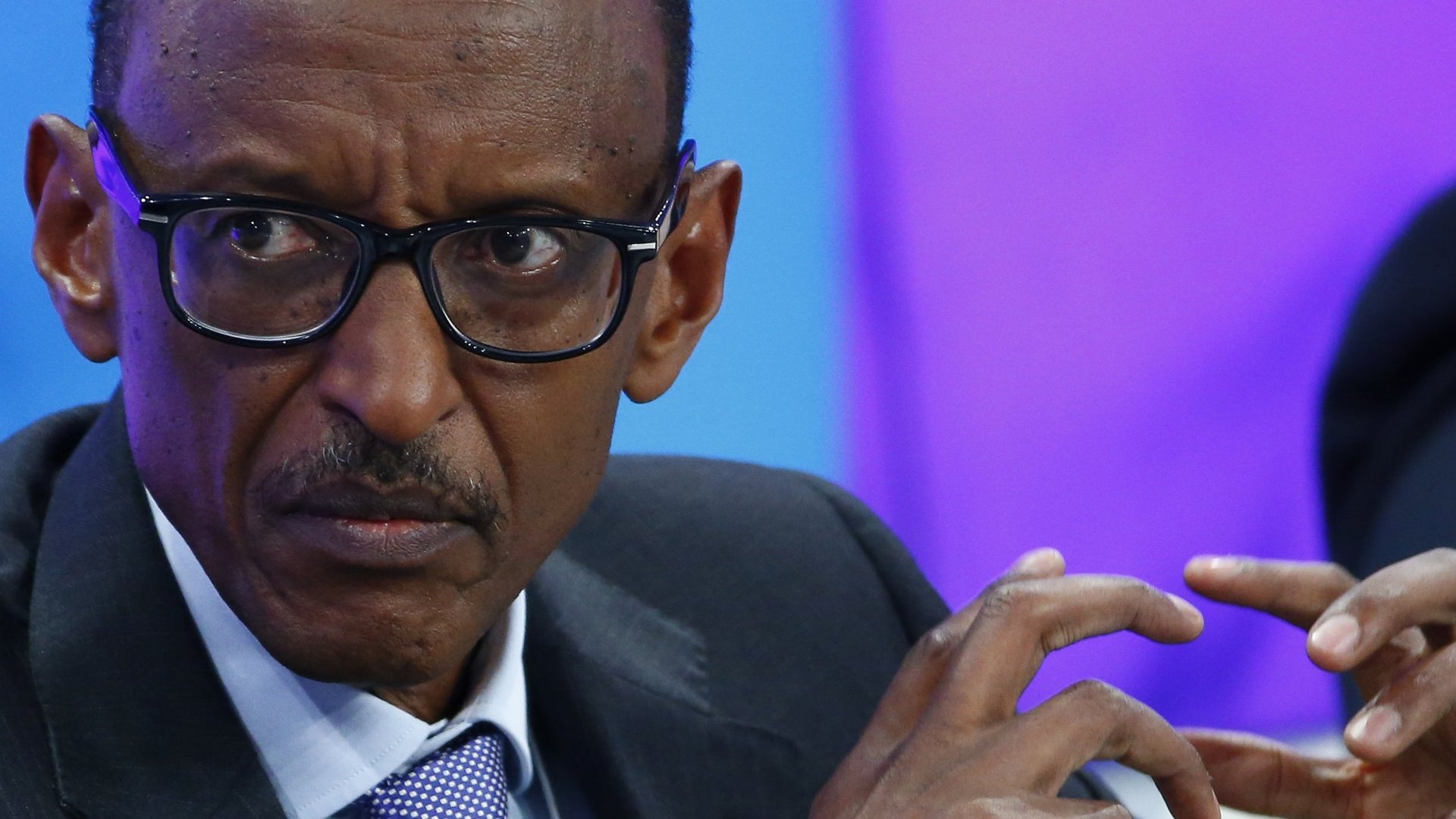Kagame says he is seeking a third term for the sake of democracy
Kigali, Rwanda


Kigali, Rwanda
Rwanda’s president Paul Kagame articulated his reasons today (May 11) for moving ahead with a controversial bid for a third term in office, despite facing criticism for the decision by the West, led by the United States.
His answer to the pointed question, “Why pursue a third term,” asked on panel by former UK prime minister Tony Blair?
Democracy.
Speaking on stage at the World Economic Forum on Africa, which Rwanda is hosting for the first time, with Blair on one side and investor/philanthropist Howard Buffett on the other, Kagame said in deciding to run for a third seven-year term in 2017 and extend his presidency, he was simply respecting the wishes of the Rwandan people.
“I didn’t ask for this thing,” he said, adding that there had been a very healthy debate within his party and with ordinary citizens about whether he should continue on as president. “I’ve told Rwandans it’s not just what you think of for yourselves, but what others think of us.” Kagame has been president since 2000.
“I said, maybe you need to take a risk with someone else,” Kagame said, suggesting they pick someone from the ruling party RPF or elsewhere. “But they kept saying no, we want you to stay.”
The decision came after the Rwandan legislature approved a change to its constitution that would allow Kagame to run again, a move supported by a referendum vote. It also comes after what is widely regarded as a remarkable turnaround of the country’s fortunes under Kagame’s leadership, following a 1994 genocide which devastated the country both emotionally and economically.
This was the most open Kagame has been on an international platform on a topic which would normally elicit a terse response. Kagame expanded on the topic after Blair opened his remarks with a joke about how he had successfully been elected for a third term in Britain’s general elections while serving as prime minister from 1997 to 2007 (there are no term limits on Britain’s prime ministers.)
Blair, whose Africa Governance Initiative provides ‘capacity building’ services to the Rwandan government, has been extremely supportive of Kagame’s leadership to date. Buffett was a more explicit backer of the idea of Kagame staying in office.
“If I didn’t think president Kagame was going to be here for another seven years, we wouldn’t even consider doing some of the things we’re trying to do,” Buffett said to audience applause.
In response to the notion of balancing the wishes of the Rwandan people with those of international critics, Kagame said, “We’re damned if we do or damned if we don’t.”
For western critics though, the concerns around a third term for Kagame may be less about an evidently successful president extending his stay in office and more about how the decision might send the wrong signals to Kagame’s counterparts in Africa.
Rwanda’s neighbor, the Democratic Republic of Congo, is a much larger unstable country going through a similar third term journey but with a less popular president, Joseph Kabila. Meanwhile, another neighbor, Burundi’s Pierre Nkurunziza is also making moves to extend his mandate, which has seen minor conflicts mounting in recent months, with fears that things might escalate into full blown civil war. In Uganda, president Yoweri Museveni, who is about to be sworn in for a fifth term, continues to clamp down on opposition leaders after 30 years in power.
While Africa has become more democratic in recent years, there are still several leaders across the continent who have styled themselves as ”presidents for life,” despite creating limited progress for their ordinary citizens. That challenge isn’t facing Kagame but it’s likely, especially if he were to keep being re-elected under the new constitution, that he’ll be frustrating the West for some time to come.